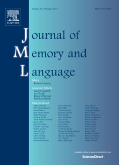 Drumroll please.
Drumroll please.
The tally of retractions in MEDLINE — one of the world’s largest databases of scientific abstracts — for the last fiscal year has just been released, and the number is: 664.
Earlier this year, we scratched our heads over the data from 2015, which showed retractions had risen dramatically, to 684. The figures for this fiscal year — which ended in September — have held relatively steadily at that higher number, only dropping by 3%. (For some sense of scale, there were just shy of 870,000 new abstracts indexed in MEDLINE in FY2016; 664 is a tiny fraction of this figure, and of course not all of the retractions were of papers published in FY2016.)
Of note: In FY2014, there were fewer than 500 retractions — creating an increase of nearly 40% between 2014 and 2015. (Meanwhile, the number of citations indexed by MEDLINE rose only few percentage points over the same time period.) Which means the retraction rate in the last two years is dramatically higher than in 2014.
We have often wondered whether the retraction rate would ever reach a plateau, as the community’s ability to find problems in the literature catches up with the amount of problems present in the literature. But based on two years of data, we can’t say anything definitive about that.
Here’s an illustration of retraction data from recent years:
Continue reading Retractions holding steady at more than 650 in FY2016


 In August, Science told us it was
In August, Science told us it was  The BMJ has released a
The BMJ has released a 
 The University of Tokyo is investigating a 2011 stem cell paper in Cell Cycle, recently retracted over irregularities in four figures.
The University of Tokyo is investigating a 2011 stem cell paper in Cell Cycle, recently retracted over irregularities in four figures.

